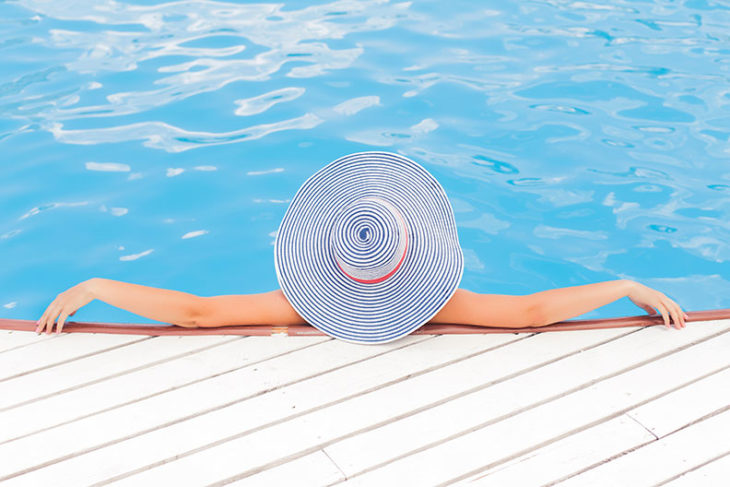by Angelyn Treutel Zeringue
Baby, it’s getting HOT, HOT, HOT — time for a jump in the swimming pool! With many areas of the nation reaching 100 degrees or higher, everyone wants to relax in a pool, but pools can very dangerous for young children, so there are several things you should do to ensure safe fun.
- Keep the pool behind a fence (at least 4 feet high with a self-latching gate).
- Empty portable pools when not in use or cover a larger pool.
- Always supervise children in a pool.
- Teach your children to swim and float and to know basic water safety.
- Don’t leave toys in the pool, because that attracts children.
- Limit alcohol use around pools and avoid excessive heat.
- Establish and enforce rules and safe behaviors; post rules such as “no diving,” “stay away from drain covers,” swim with a buddy” and “walk, please.”
- Make sure you know how to respond to an emergency by having appropriate safety equipment and taking water safety, first aid and CPR classes.
You are liable if someone drowns or is injured in your pool, even if you did not give him or her permission to use the pool. Make sure your insurance agent knows you have a pool so that the liability coverage may be added to your home policy.
Some insurance carriers exclude pool liability coverage, so your agent may have to assist you in obtaining separate coverage or a different policy. A good practice is to carry at least $300,000 liability and an additional $1 million umbrella policy if you own a pool.
The homeowner’s liability stems from the legal term “negligence”, which is the failure to do what a reasonable person would have done under similar circumstances. Any injuries resulting from a lack of security around a pool or the failure to properly maintain the pool in good condition may result in homeowner liability, because homeowners with pools are expected to protect guests and prevent unwanted visitors. If a homeowner is negligent in keeping the pool area safe and inaccessible, then he or she could be liable for injuries suffered in or around the pool.
Due to the high risk of slip-and-fall accidents in slippery areas surrounding a swimming pool, owners must take reasonable care to provide non-slip surfaces and to take other measures to prevent accidents, such as warning guests of an unsafe condition or cleaning up standing puddles of water on the pool deck.
Have fun — and stay safe, too!
Zeringue, CPA, PWCAM, is president, SouthGroup Insurance.



